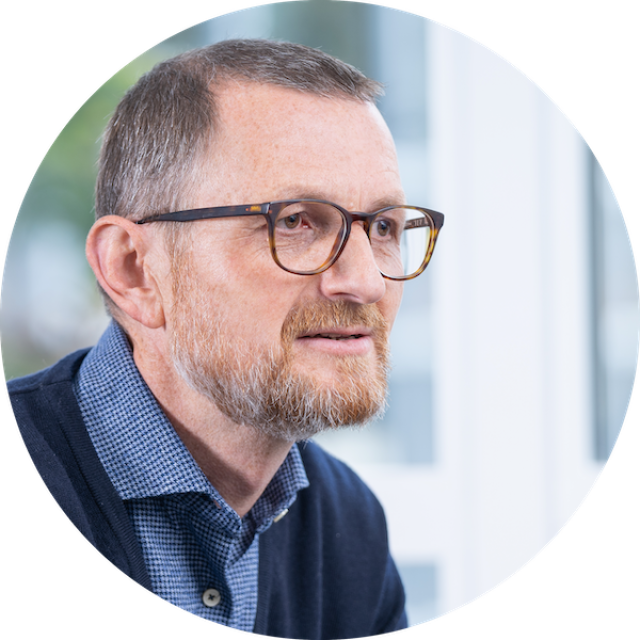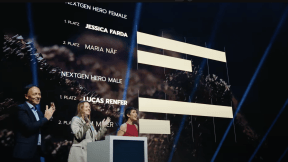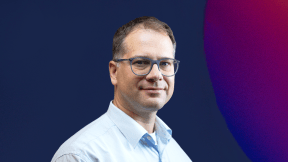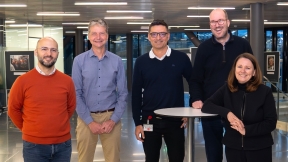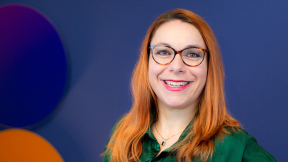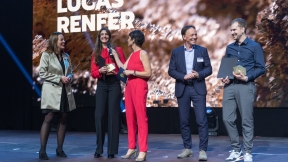Alexandre Gachet is the new Chairman of the Switch Foundation Council
At its ordinary meeting in June 2023, the Switch Foundation Council unanimously elected Alexandre Gachet as its new Chairman. He succeeds Peter Kofmel on 1 January 2024, who is retiring.
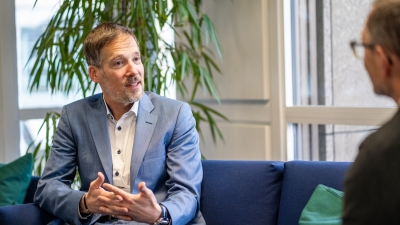
With the election of Alexandre Gachet, Switch has gained a profound expert of the foundation as its new chairman. He has been passionately committed to the digitalisation of Swiss universities for many years. Who is Alexandre and what motivates him in his new role? We met him for an interview in our Zurich office.
Dear Alexandre, congratulations on your election as Chairman of the Foundation Council. Tell us a little about yourself and your personal journey.
Thank you very much. My first contact with Switch dates back to 1994 when the foundation was only 7 years old. I started studying computer science and mathematics and later also economics at the University of Fribourg. Switch was this almost magical entity that provided the university community with an excellent Internet connection, something that was not taken for granted at the time.
After graduating in 1999, I wrote my doctoral thesis – also in Fribourg – on the subject of distributed systems for decision support. This research allowed me to deepen my relationship with Switch, in particular by analysing different network topologies and taking an interest in IT security in different decision-making contexts. After completing my doctorate in 2003, I went to the USA on a post-doctoral research programme. Then, back in Europe, I left academia to work in various sectors. These included mainly banking, insurance and some public administrations.
A few years later, after losing sight of Switch for a while, I had the opportunity to return to the University of Fribourg as CIO in 2012. It was a pleasure to discover just how much the foundation had developed. My links with Switch then intensified, particularly from 2015 when I joined the Foundation Council, and again in 2018, when I was elected to the Foundation Committee. Finally, in 2021, I changed my function at the University of Fribourg, giving up the position of CIO to take on the role of Administrative Director. After more than 25 years in IT, I also added an MBA to my set of skills, which I obtained in 2019.
What prompted you in 2015 as a new member of the Foundation Council, to become even more involved in Switch and thus in the digitalisation of Swiss universities?
There is no denying that the academic world – as a microcosm representative of large sections of our society – is going through a period of turbulence. No one can predict with any certainty what the Swiss higher education landscape will look like after this turbulence. The possibilities range from a relative status quo to far-reaching changes.
The reality is likely to lie somewhere between these two extremes. It is exciting to be able to witness and support such a pivotal period. While this period undoubtedly harbours a number of risks that need to be overcome, particularly in terms of the pressure on financial resources. However, I also see opportunities that need to be utilised, for example in the search for better synergies.
Nevertheless, I am firmly convinced that with the right strategy, the Switch Foundation – with its history, its skills and its potential – can play an even greater role over the next few years for the benefit of Switzerland's higher education institutions. It's an honour to be able to join Switch in this process.
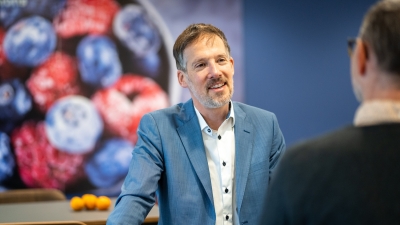
What experiences and perspectives will you benefit from the most to lead Switch into a prosperous future?
It's a rare opportunity that I was able to be the CIO of a medium-sized comprehensive university on the language border (Fribourg) for around 10 years, and then to take over the administrative management. Even after just two years in my new role, I've come to appreciate the full extent of this privileged situation. It allows me to see both sides, firstly from the perspective of the digital service provider, and secondly from that of the consumer of these services.
In the coming years, I am counting as much on the exchange with my colleagues of the administrative management of other universities, as I am counting on the exchange with my former CIO colleagues with whom I still have privileged contacts to make progress on Switch's strategic issues.
What are you particularly looking forward to in your new role?
I am particularly pleased to be able to commit myself to a foundation with a truly national profile. Switch is the foundation of the universities, the university cantons, and the Swiss Confederation. That's no mean feat. As an employee of a cantonal university, I'm delighted that Switch gives me a broad overview of Switzerland as a whole, with contacts from every region.
Where do you see the biggest challenge for Switch in the coming years?
As a result of the turbulence mentioned before, Switch is likely to face a series of interconnected challenges in the years ahead. It is difficult at this stage to single out just one biggest challenge at the expense of the others. That said, if I have to mention one particular concern, it is the possible financial deterioration of higher education institutions. If university budgets stagnate or decline in the coming years, Switch will have to be careful not to allow itself to be drawn into a negative spiral, but on the contrary to strengthen its ability to listen, to be creative and to convince in order to offer services that make the most of the new potential synergies in the digital domain.
Do you already have an idea of how you want to approach it?
We will pay particular attention to this issue when developing the next Switch strategy "Strategy 2025+", the timing of which looks favourable with work due to start at the beginning of 2024.
In your opinion, what makes Switch unique?
I have a great deal of respect for the founders of Switch, the federal government and the eight university cantons at the time, who, in 1987, had a very clear vision of what they were aiming to achieve with this foundation. The proof of this is that, despite a technological environment that has changed completely over the last 36 years, the purpose defined in the deed of foundation is still very clear and relevant today.
In my view, Switch's strong, long-term, nationwide anchoring of the Switch foundation gives it an absolutely unique character in its endeavour to continue ‘to create, promote and offer the necessary basis for the effective use of modern methods of telecomputing in teaching and research in Switzerland, to be involved in and to support such methods’. (Editor's note: Excerpt from the deed of foundation.)
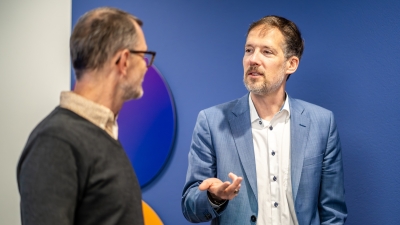
How should Switch exploit this uniqueness even further in the future?
At an internal Switch event recently, I told the Switchies that before I began my studies at university, I did my A-levels at a college founded in Fribourg in 1582. Its motto is still a quote from the Latin poet Ovid: ‘Laudamus veteres sed nostris utimur annis’, which can be translated as ‘We praise the good old times, but we live today.
I would argue – with a little poetic imagination – that this motto also applies to Switch, to allow it to further exploit what makes it unique. On the one hand, ‘We praise the good old times’ means that we remember where we came from, that we celebrate our roots, that we respect our foundations, including the skills for which Switch has always been renowned and still is today. This primarily includes the areas of cyber security, digital identity, research network and registry.
On the other hand, ‘but we live today’ means that Switch must continue to develop new skills, building on its foundations, to adapt to the new challenges we talked about earlier. With this in mind, Switch is now also involved in cloud services and legal and procurement issues.
If Switch succeeds in aligning its strategy with these principles, I am convinced that the foundation will build a successful future for itself and its community.
Dear Alexandre, thank you very much for this interview.
